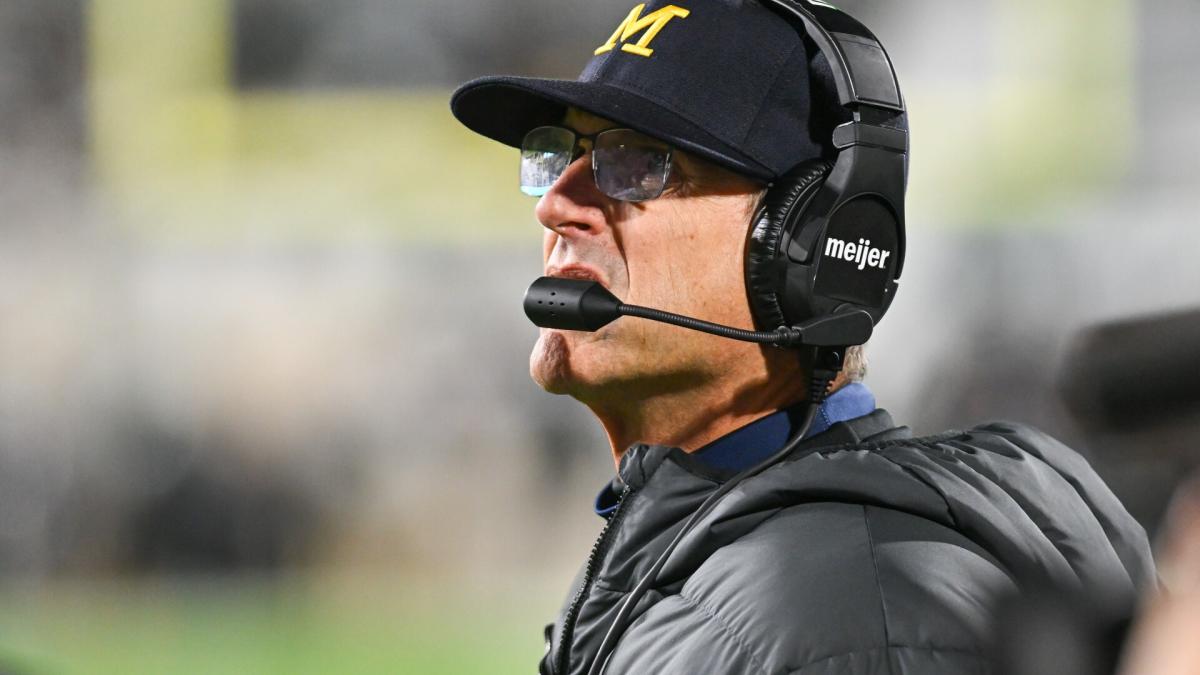
The NCAA has delivered its official Notice of Allegations to the University of Michigan in the high-profile case involving Connor Stalions, a team spokesman told NBC Sports on Sunday. Stalions was at the heart of the Wolverines’ alleged in-person scouting and sign-stealing scheme last season.
The document states that seven members of the 2023 Michigan football program — including current head coach Sherrone Moore — are accused of violating NCAA rules. Moore is specifically cited for allegedly deleting 52 text messages from a thread with Stalions in October 2023, though the messages have since been recovered. Moore said he looks forward to them being released.
Moore is facing a potential Level 2 violation for deleting the messages, which could bring with it a significant penalty, such as a suspension, because the NCAA considers him a potential repeat violator of NCAA rules due to an earlier NCAA investigation into Michigan’s COVID-era recruiting violations. Moore worked with the NCAA to resolve his role in the case as part of a negotiated resolution, which means both sides were in agreement on the violation and its severity as well as the subsequent penalty. A negotiated resolution expedites an NCAA investigation because the subject agrees to admit wrongdoing.
Former Michigan head coach Jim Harbaugh, former assistants Chris Partridge and Denard Robinson, and Stalions are all accused of committing Level I violations, as is the school itself. Former assistants Jesse Minter and Steve Clinkscale (who both followed Harbaugh to the Los Angeles Chargers this offseason) have been accused of recruiting violations unrelated to Stalions’ scouting operation. ESPN first reported the specific coaches mentioned in a draft version of the NCAA’s NOA earlier this month.
An NCAA spokesperson confirmed on Sunday that the Notice of Allegations was sent to Michigan and the other parties involved in the case. “To protect the integrity of the infractions process as the case progresses forward, the NCAA will not provide any further comment on the specifics included,” the spokesperson said.
Minter and Robinson are working with the NCAA on a negotiated resolution, a source said. That means the NCAA will split the case, with the rest of the participants (and the university) contesting the allegations and taking the longer and more complicated route that involves the NCAA’s Committee on Infractions. Harbaugh, who was hit with a four-year show-cause order that included a one-season suspension in the earlier recruiting violations case, would also be expected to be viewed as a repeat violator of NCAA rules.
This is the final chapter of a saga that dominated the 2023 college football season. The existence of Stalions’ alleged advanced scouting scheme was first revealed to both the NCAA and the public in late October, and Stalions resigned on Nov. 3. Stalions is set to make his first public comments on the situation in a Netflix documentary that premieres on Tuesday.
The Big Ten, receiving information from the NCAA in real time, suspended Harbaugh for the final three regular-season games of last season, with commissioner Tony Petitti stating that the conference had proof that Michigan violated the Big Ten’s sportsmanship policy due to Stalions’ scouting operation. The operation included buying tickets to games involving Michigan’s future opponents and recording the signs being sent into the game from the sidelines. NCAA rules allow teams to steal signs in-game or off game film from television broadcasts, but they ban in-person scouting.
The NCAA has not provided any evidence that connects Harbaugh himself to knowledge of Stalions’ scheme, the source said. But the NCAA can still hold Harbaugh accountable for wrongdoing that happens with or without his knowledge as part of its head coach responsibility rule.
Michigan has 90 days to formally respond to the NCAA.
